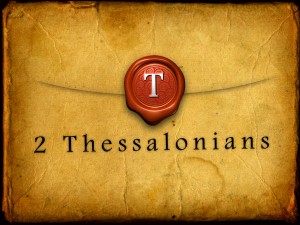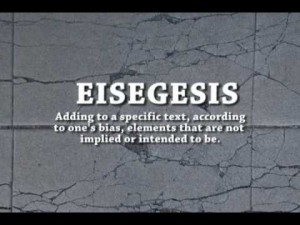 I hope you all had a wonderful Christmas! My own is is ongoing as my wife and I are boarding a plane to spend a week with her parents in Iowa. I really appreciate those of you who read my posts here on a regular basis and I have some exciting news. First, I finished my Masters of Arts degree in Theological Studies at Liberty Baptist Theological Seminary last Fall semester. While now I have some credentials to serve in this capacity, I have hopes of perhaps teaching at the college or seminary level, so I will be pursing further study at Southeastern Baptist Theological seminary this Spring. I will be concentrating on Greek intensives, with the goal of entering the PhD program in the near future. Second, I have signed a contract to co-author a book with Tom Horn on the Malachy Prophecy of the Popes. The reason I have not posted here much lately is that I have been working 14 hour days on that project. I assure you the subject is much deeper than I ever imagined. The research for this book has taken me places I never imagined possible. Look for some jaw dropping revelations this Spring.
I hope you all had a wonderful Christmas! My own is is ongoing as my wife and I are boarding a plane to spend a week with her parents in Iowa. I really appreciate those of you who read my posts here on a regular basis and I have some exciting news. First, I finished my Masters of Arts degree in Theological Studies at Liberty Baptist Theological Seminary last Fall semester. While now I have some credentials to serve in this capacity, I have hopes of perhaps teaching at the college or seminary level, so I will be pursing further study at Southeastern Baptist Theological seminary this Spring. I will be concentrating on Greek intensives, with the goal of entering the PhD program in the near future. Second, I have signed a contract to co-author a book with Tom Horn on the Malachy Prophecy of the Popes. The reason I have not posted here much lately is that I have been working 14 hour days on that project. I assure you the subject is much deeper than I ever imagined. The research for this book has taken me places I never imagined possible. Look for some jaw dropping revelations this Spring.
My last research project for my Master’s Degree was an exegetical paper on Paul’s most definitive statement concerning the Antichrist and end-times, 2 Thessalonians 2:1-12. It is a notoriously difficult pericope for exegesis but I chose it due to my deep interest in things eschatological. Fee and Stuart even use it as an example of “problem passages:”
In many cases the reason the texts are so difficult for us is that, frankly, they were not written to us. That is, the original author and his readers are on a similar wavelength that allows the inspired author to assume a great deal on the part of his readers. Thus, for example, when Paul tells the Thessalonians that they are to recall that he “used to tell [them] these things,” and therefore “you know what is holding him back” (2 Thess 2:5–6), we may need to learn to be content with our lack of knowledge. [1]
Even so, I think this passage has a very important word for us today. In lieu of cutting an pasting the entire paper, I am going to post the introduction and a link to down load the pdf if yu want to read the whole thing. I derive several important implications for the modern church which I may post later as a separate post but I wanted to make it available to you now as 2012 promises to be a big year.
Introduction
No one likes waiting. Patience, persistence and perseverance are not popular words. They convey capricious craving, laborious longing and unrequited love. How intense is the longing when waiting for one of infinite worth? Christians live in the tension of what is called the “already but not yet” paradigm. This refers to the idea that Christ inaugurated the kingdom at the first advent but it will not be fully realized until the second at the eschaton. Gordon Fee writes, “The theological framework of the entire New Testament is eschatological.”[2] Thus, there is a tension inherent in the Christian worldview that eclipses all the yearnings of adolescence. It is the groaning of creation itself (Rom 8:22).
The purpose of this paper is to interpret 2 Thessalonians 2:1-12 using sound exegetical methodology. This presentation will first give a survey of the historical and literary context, and then it will offer exegesis of the text. Difficulties arise because Paul assumes knowledge on the part of the original recipients that subsequent generations do not have. Allusions to the Old Testament will be discussed based on Paul’s background. Each issue will be handled sequentially. The paper will attempt to show that because we still live in the apocalyptic tension of the already/not yet, the eschatological content still has great value for the contemporary church. Paul taught the Thessalonian church that they would recognize the “day of the Lord” by two harbingers: the apostasy and the appearance of the man of lawlessness.
Download: 2 Thessalonians 2 Exegetical Research – Cris D. Putnam
[1]Gordon D. Fee and Douglas K. Stuart, How to Read the Bible for All Its Worth, 3rd ed. (Grand Rapids, MI: Zondervan Publishing House, 1993), 69.
[2]Ibid, 145.






